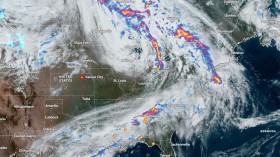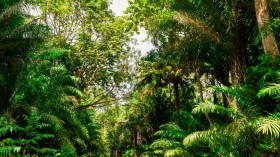This generation is fortunate enough to be able to enjoy National Parks, preserved and conserved into its pristine condition by organizations whose sole purpose is to let more people enjoy the natural wonders and to keep them in its natural state for the longest time possible. But as the times change, the adverse effect of climate change is threatening to disrupt the way people view National Parks.
This war against climate change is taking its toll on the national parks that are widely available to many until today. And they are now tasked to try and battle the effects of climate changed in the treasured national parks.
Currently, there are 412 national parks, according to the National Parks Service (NPS) and the rising global temperature and melting ice caps are threatening most of them. Recently reports say that some parts of the Yellowstone National Park like the fishing river has been closed to the public.
During the 100th anniversary of the NPS, the organization revealed that some parks that are considered natural treasures are losing to natural causes such as crashing waves, soil erosion and wildfires.
"We are starting to see things spiral away now," Gregor Schuurman, ecologist at NPS climate change response program, said in an interview. "We are going to look back at this time and actually think it was a calm period. And then people will start asking questions about what we were doing about the situation," Schuurman added.
A report said that agencies tasked to manage the national parks led by the NPS are turning into "scenario planning" to try and protect national parks.
"It's very difficult for us as humans to consider more than one future in an effective way, and if there's an emotional component involved, we just shut down," Schuurman said in a statement. "Scenario planning comes out of an environment where that's not an option," Schuurman added.
Measures to prevent the destruction of national parks are being considered so as to save them from the worsening effects of climate change. But one thing is for sure, the future generation may not see the parks the way it is today as changes have already transpired.
© 2024 NatureWorldNews.com All rights reserved. Do not reproduce without permission.


![Microplastics Escape Body's Gut to 'Infiltrate' the Brain, Kidneys and Liver [Study]](https://1471793142.rsc.cdn77.org/data/thumbs/full/70195/280/157/50/40/microplastics-escape-bodys-gut-to-infiltrate-the-brain-kidneys-and-liver-study.jpg)


